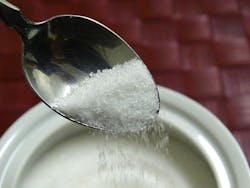Artificial Sweeteners Revealed in Rural Groundwater
A study published in the Journal of Environmental Quality revealed evidence of four artificial sweeteners—a sign of human wastewater impact—in rural groundwater. The study, conducted by researchers from the University of Waterloo, focused on rural groundwater wells in the Nottawasaga River Watershed. “Artificial sweeteners are ideal human wastewater tracers as they exit the human body essentially unchanged and are not completely removed by most wastewater treatment processes,” according to a University of Waterloo press release.
The researchers analyzed both private wells and groundwater seeping out of the banks of the Nottawasaga River. In private wells, they found that more than 30% of samples showed detectable levels of artificial sweeteners. Regarding the Nottawasaga River groundwater, the group found that 32% of their samples tested positive for sweeteners. The presence of sweeteners indicated that the water had been affected by septic system effluent.
A 2013 study by the same group of researchers showed the presence of artificial sweeteners in the Grand River. Given the results of the previous study, the researches were not surprised. First author of the study John Spoelstra said, “Septic systems are designed to discharge effluent to groundwater as part of the wastewater treatment process. Therefore, contamination of the shallow groundwater is a common problem when it comes to septic systems.”
